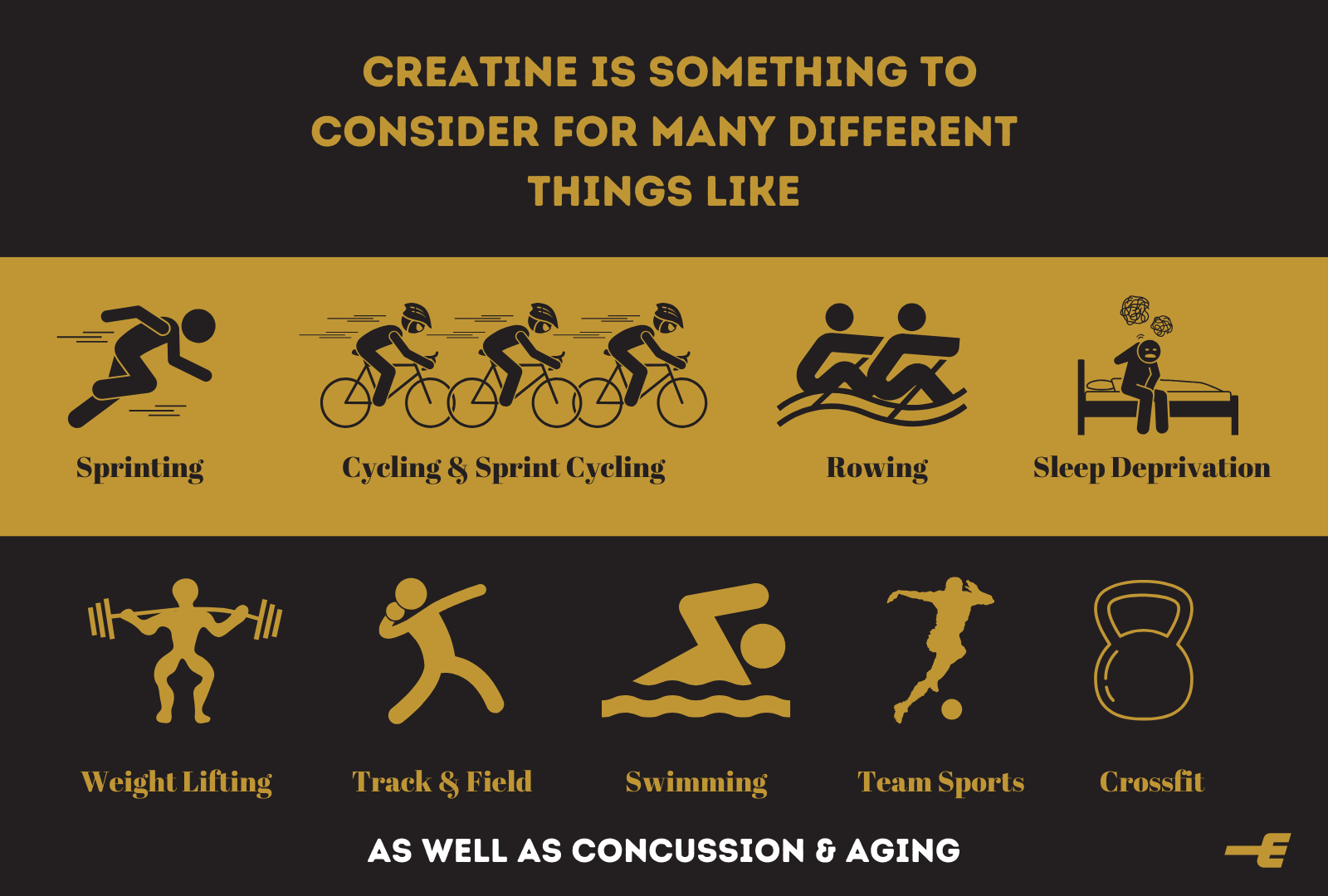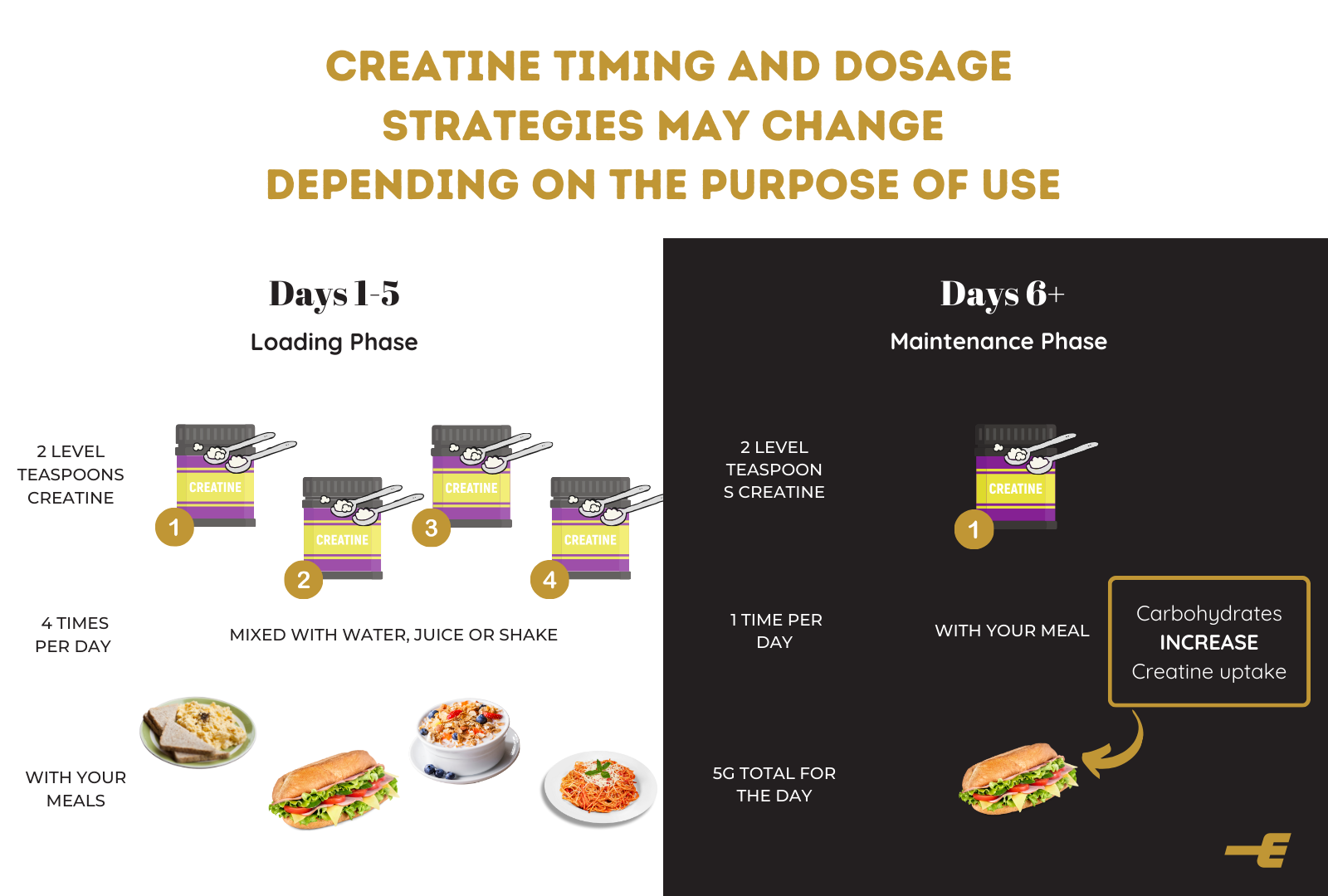
Feeling confused about Creatine and who it actually benefits? (P.S. it’s not just bodybuilders!) Or maybe you’re hesitant because you’ve heard about potential side effects like bloating or water retention?
Let’s clear up the myths and misconceptions surrounding this versatile supplement.
Creatine is actually one of the most effective and widely-used supplements in sports nutrition. Unfortunately, it’s often misunderstood, with many people thinking it’s only for those looking to bulk up.
We’re here to set the record straight and explain how creatine can benefit a wide range of athletes, regardless of your sport or fitness goals.
Let’s dive into some myth-busting, shall we?
Our Top 7 Creatine Myths Busted!
Myth 1: “Creatine is an anabolic steroid”
The real truth? The performance outcomes in strength and power may be similar, but they are VERY different. Steroids are a drug however Creatine is a dietary supplement.
Myth 2: “It’s only for guys”
None of us can argue that more female specific research needs to be done in ALL areas of sports nutrition. But there are some great studies showing benefit to females. In both in performance and brain health.

Myth 3: “It increases fat mass”
This comes from concern around weight change from supplementing from creatine. Although some will notice a small change in weight in the early stages of supplementing. This will be because of some water retention. But not because of fat mass increases.
Myth 4: “It’s only for athletes”
Heck no! Creatine is awesome to consider for all levels of active individuals. It’s also great for the elderly, concussion and injury recovery.
Check out our podcast on all things Creatine for Concussion with the legend Dr Eric Rawson below:
Myth 5: “Take it as a pre-workout”
Nope, no you don’t. Creatine isn’t an acute, short-term performance supplement. It is best used as something you store in the muscle over time. Take it consistently at a similar time each day. Furthermore you would ideally with a carbohydrate containing meal. Timing around your sessions doesn’t matter. Simply find a time that works for you and remembering to take it!

Myth 6: “It causes cramping”
There is currently no evidence to support this concern. Cramping occurs due to fatigue. Therefore, it is important to look at any concerns such as; load, intensity, endurance, injury, change in equipment, under-fuelling and hydration.
Myth 7: “It’s only for bodybuilders”
One of the more unfortunate PR stunts of creatine is that it is often perceived as a supplement for ‘bulking’. Creatine is only mildly effective at increasing lean mass, it is actually way better at increasing power output, strength & performance for intermittent sprints!
Think creatine might be the right supplement for you, but not sure where to start?
Take a moment to reflect on your goals and how creatine could support your progress.
If you’re ready to explore how creatine can fit into your performance plan? Schedule a call with our team to discuss how we can support you in achieving your goals through supplements, or even better – complete our Performance Profile below to see if there are any other areas that could be holding you back from achieving your goals.
References:
- Cooper R, Naclerio F, Allgrove J, Jimenez A. Creatine supplementation with specific view to exercise/sports performance: an update. J Int Soc Sports Nutr. 2012;9(1):33. Published 2012 Jul 20. Available from: http//doi:10.1186/1550-2783-9-33
- Ribeiro F, Longobardi I, Perim P, Duarte B, Ferreira P, Gualano B, et al. Timing of Creatine Supplementation around Exercise: A Real Concern? Nutrients [Internet] 2021;13(8):2844. Available from: http://dx.doi.org/10.3390/nu13082844
- Avgerinos K, Spyrou N, Bougioukas K, Kapogiannis D. Effects of creatine supplementation on cognitive function of healthy individuals: A systematic review of randomized controlled trials. Experimental Gerontology. 2018;108:166-173.


